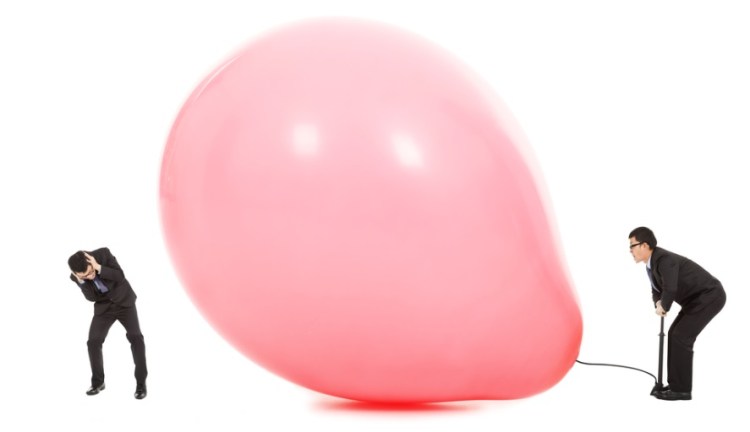You know you’re in a bubble when no fewer than 100 startups are worth over a billion dollars.
You know you’re in a bubble when each month 2 or 3 new members join this billion dollar club.
You know you are in a bubble when a prominent Silicon Valley VC analyzes the common denominator among all billion-dollar startups at their Series A stage and concludes that it should add some new criteria to its deal flow selection such as:
- Zero Monetization: i.e. the startup should not worry about making revenue during the startup phase — not even at the Series A stage.
- Untested founders are preferred to experienced entrepreneurs.
You know you’re in a bubble when in the last 12 months, seed investments are divided by three, while late stage investments are multiplied by 2.5 ; great seed projects get denied by VCs who focus on reinvesting in big unicorns.
You know you’re in a bubble when Chinese tech average price per earnings for public tech companies is 220. As a reminder, during the dot come bubble, the P/E in the US was around 160.
This is crazy, right? So when is the bubble going to burst?
Well, it depends on how you envision the “burst.” Let’s have a second look and see where exactly the bubble is. Unlike the dotcom bubble, this one is focused on private companies and not public ones, at least in the U.S. As a matter of fact, the valuations of tech public companies in the U.S. are not extraordinarily high. Valuations of Facebook, Apple, Google, and Amazon are definitely well above “normal,” and a big correction may happen anytime, but that will not necessarily be triggered by the tech bubble we are talking about here, even though it may be one of its facilitating factors.
Unlike the 2001 bubble, this one is on late-stage private startups. In fact the bubble is so obvious that these billion-dollar startups don’t even want to go public because they know they’ll not get the same valuations at IPO. The burst will definitely hurt these companies, leading many of them to shut down. It will also hurt the venture capital funds that have heavily invested in them, with possible further consequences in the whole financing chain coming down to Series C, B, and A.
Now combine this very likely bubble burst with the Regulation A+ measures of the JOBS Act that were announced a couple of weeks ago and that will go into effect in the coming months, and we should expect big changes in the private equity funding landscape in the U.S. before the end of the year.
[The opinions expressed in this story are solely my own and do not express the views or opinions of my company.]
Darius Lahoutifard is an enterprise SaaS executive and entrepreneur, founder of Business Hangouts, an enterprise app for Google’s Hangouts on Air, and market research boutique 01consulting. You can follow him on LinkedIn or follow his company on Twitter.
VentureBeat's mission is to be a digital town square for technical decision-makers to gain knowledge about transformative enterprise technology and transact. Learn More

